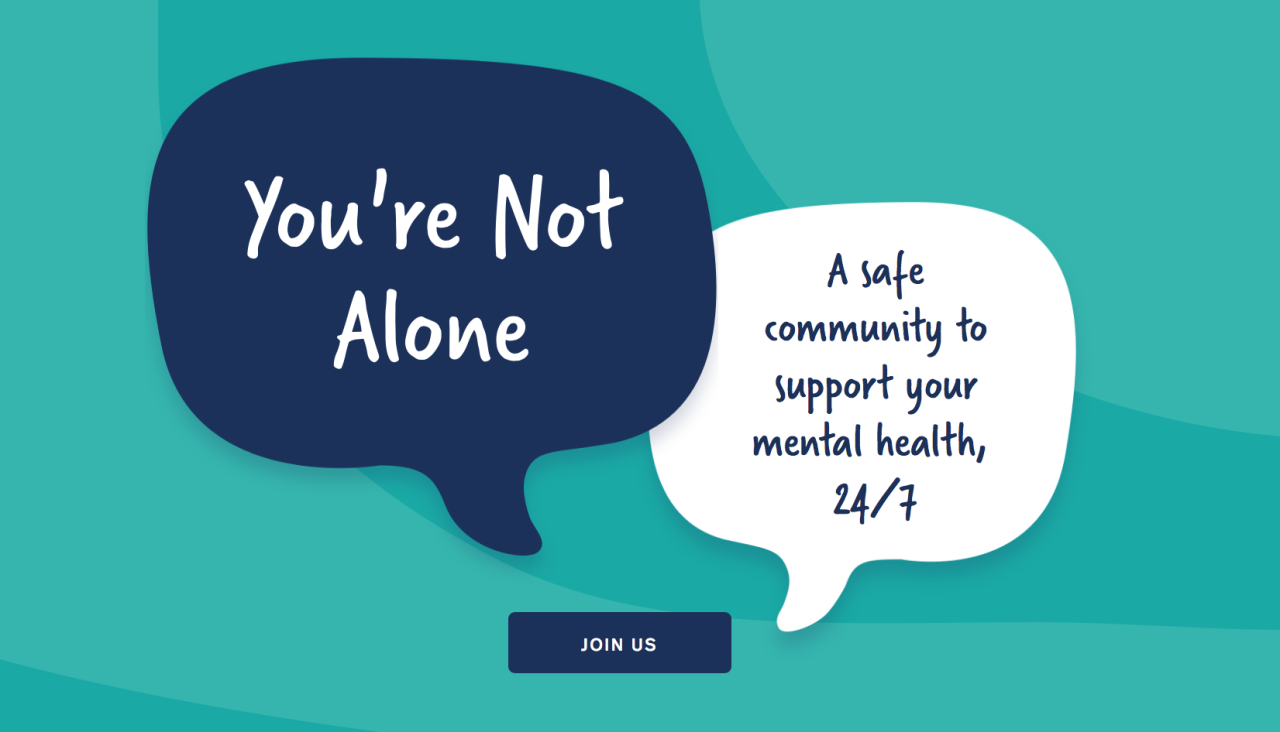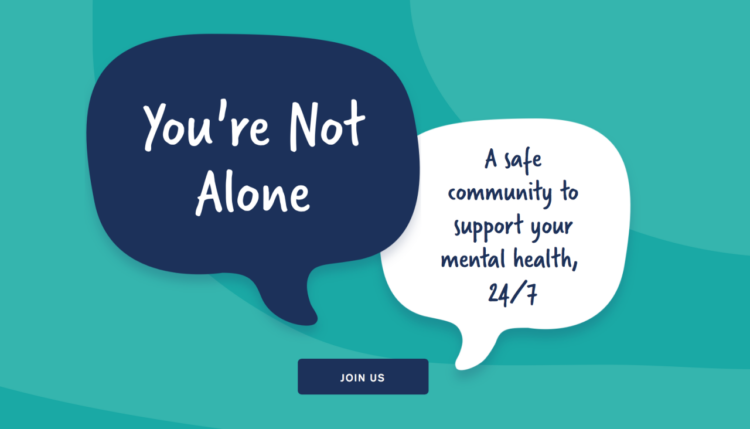
Types of Online Mental Health Treatments
Online mental health treatments offer various options for individuals seeking support and care. These treatments utilize technology to provide convenient and accessible mental health services.
The different types of online mental health treatments include:
Online Therapy
- Live video sessions: Real-time, face-to-face video consultations with a licensed therapist.
- Text-based therapy: Communication with a therapist through secure messaging or email.
- Virtual reality therapy: Immersive experiences using virtual reality technology to address specific mental health concerns.
Online Self-Help Programs
- Guided meditations and mindfulness apps: Guided audio or video sessions to promote relaxation, stress reduction, and emotional regulation.
- Cognitive behavioral therapy (CBT) apps: Interactive programs based on CBT principles to help users challenge negative thoughts and develop coping mechanisms.
- Online support groups: Virtual communities where individuals can connect with others who share similar experiences and provide support.
Benefits and Drawbacks
Online mental health treatments offer several benefits:
- Convenience and accessibility: Services can be accessed from anywhere with an internet connection, reducing barriers such as transportation and scheduling.
- Privacy and anonymity: Online platforms provide a confidential and secure environment for seeking help.
- Cost-effectiveness: Some online treatments may be more affordable than traditional in-person therapy.
However, there are also some drawbacks:
- Lack of personal connection: Online therapy may not provide the same level of personal connection as in-person sessions.
- Technical issues: Internet connectivity problems or technical glitches can disrupt sessions.
- Limited availability of services: Some online mental health treatments may not be available in all areas or for all types of mental health concerns.
Examples of Platforms
- BetterHelp: A platform offering online therapy and self-help programs.
- Talkspace: Another online therapy platform with a variety of options, including live video sessions.
- Headspace: An app that provides guided meditations and mindfulness exercises.
- Moodpath: A CBT-based app that helps users track their mood and learn coping mechanisms.
- 7 Cups: An online support group platform where users can connect with trained listeners.
How to Choose an Online Mental Health Treatment
When choosing an online mental health treatment, there are several factors to consider to ensure you find the best fit for your needs.
First, it’s important to assess the quality of the treatment provider. Look for providers who are licensed and certified by reputable organizations, such as the American Psychological Association or the National Board for Certified Counselors. Additionally, check for providers who have experience in treating the specific mental health conditions you are experiencing.
Next, consider the type of treatment you need. There are many different types of online mental health treatments available, including therapy, medication management, and self-help programs. Research the different options to find one that aligns with your preferences and needs.
The Benefits of Online Mental Health Treatment
Online mental health treatment offers numerous advantages that can make it an effective and convenient option for individuals seeking support. Its accessibility, flexibility, and effectiveness have made it increasingly popular in recent years.
Online therapy provides convenience and flexibility, allowing individuals to access professional help from the comfort of their own homes. This can be particularly beneficial for those who face barriers to traditional in-person therapy, such as transportation issues, limited mobility, or busy schedules. Moreover, online platforms offer a wider range of therapists and treatment options, enabling individuals to find the best fit for their specific needs.
Improved Access to Care
Research has consistently demonstrated that online mental health treatment can significantly improve access to care. Studies have shown that individuals living in rural areas or with limited transportation options are more likely to utilize online therapy services. Additionally, online platforms can reduce wait times for appointments, ensuring that individuals receive timely support when they need it most.
Cost-Effectiveness
Online mental health treatment can be more cost-effective than traditional in-person therapy. By eliminating the need for travel and office space, online platforms can offer lower fees and more affordable treatment options. This makes mental health support more accessible to individuals with financial constraints or those who lack insurance coverage.
Increased Comfort and Privacy
Online therapy provides a safe and private environment for individuals to discuss sensitive topics. The anonymity and convenience of online platforms can reduce the stigma associated with seeking mental health help, encouraging individuals to open up more freely and engage in more effective treatment.
Evidence-Based Treatment
Online mental health treatment is based on the same evidence-based principles as traditional in-person therapy. Studies have shown that online therapy can be just as effective as in-person therapy for a wide range of mental health conditions, including depression, anxiety, and post-traumatic stress disorder (PTSD).
Enhanced Engagement
Online platforms often incorporate interactive features, such as video conferencing, chat rooms, and self-help resources, which can enhance engagement and motivation. These features allow individuals to connect with their therapists in real-time, participate in group discussions, and access educational materials, all of which can contribute to a more comprehensive and engaging treatment experience.
Improved Outcomes
Numerous studies have demonstrated that online mental health treatment can lead to significant improvements in mental health outcomes. Research has shown that individuals who engage in online therapy experience reductions in symptoms of depression, anxiety, and stress. Moreover, online therapy has been found to be effective in improving quality of life, self-esteem, and overall well-being.
The Challenges of Online Mental Health Treatment
While online mental health treatment offers numerous benefits, it also presents certain challenges that need to be acknowledged and addressed.
One significant challenge is the lack of face-to-face interaction, which can hinder the development of a strong therapeutic relationship. Additionally, technical difficulties, such as unstable internet connections or software glitches, can disrupt sessions and create frustration.
Overcoming Challenges
To overcome these challenges, it’s crucial to choose a reputable online mental health platform that provides reliable technology and a secure environment. Establishing a consistent schedule for sessions and having a dedicated workspace can also minimize disruptions.
Getting the Most Out of Treatment
To get the most out of online mental health treatment, it’s essential to:
- Be open and honest with your therapist.
- Actively participate in sessions and complete any assigned tasks.
- Be patient and persistent, as progress takes time and effort.
- Seek support from family, friends, or support groups to supplement your treatment.
The Future of Online Mental Health Treatment

As technology continues to advance, it is likely to have a significant impact on the future of online mental health treatment. One way that technology is likely to impact online mental health treatment is by making it more accessible. Currently, one of the biggest barriers to accessing mental health treatment is the cost. However, with the advent of new technologies, such as virtual reality and augmented reality, it is becoming possible to provide mental health treatment at a much lower cost.
Another way that technology is likely to impact online mental health treatment is by making it more personalized. Currently, many online mental health treatments are based on a one-size-fits-all approach. However, with the advent of new technologies, such as artificial intelligence, it is becoming possible to tailor mental health treatments to the individual needs of each patient.
Finally, technology is likely to make online mental health treatment more effective. Currently, many online mental health treatments are based on traditional talk therapy. However, with the advent of new technologies, such as biofeedback and neurofeedback, it is becoming possible to develop new and more effective treatments for mental health conditions.
Virtual reality and augmented reality
Virtual reality (VR) and augmented reality (AR) are two of the most promising new technologies for online mental health treatment. VR can be used to create immersive experiences that can help patients to overcome their fears, phobias, and other mental health conditions. AR can be used to overlay digital information onto the real world, which can help patients to learn new coping mechanisms and to manage their symptoms.
Artificial intelligence
Artificial intelligence (AI) is another promising new technology for online mental health treatment. AI can be used to develop chatbots that can provide support to patients between sessions. AI can also be used to analyze data from patient interactions to identify patterns and to develop personalized treatment plans.
Biofeedback and neurofeedback
Biofeedback and neurofeedback are two new technologies that can be used to help patients to manage their mental health symptoms. Biofeedback involves teaching patients to control their physiological responses, such as their heart rate and breathing. Neurofeedback involves teaching patients to control their brain activity. Both biofeedback and neurofeedback have been shown to be effective in treating a variety of mental health conditions, including anxiety, depression, and PTSD.





